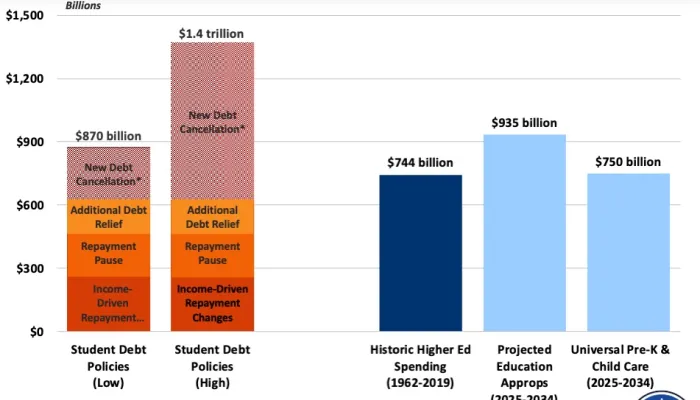Adding Debt to Tax Deal Would Be a Costly Blunder
Some lawmakers have recently suggested combining the House-passed Tax Relief for American Families and Workers Act of 2024 (also known as Wyden-Smith), which would revive expiring business tax cuts and expand the Child Tax Credit through 2025, with the Senate-passed Radiation Exposure Compensation (RECA) Reauthorization Act, which would significantly expand payments and benefits to those who have been affected by nuclear testing.
The Wyden-Smith bill is fully offset albeit partially through the use of arbitrary expirations, which might lead to significant future costs. The RECA bill, by contrast, has no offsets and would add a reported $50 to $60 billion to deficits over a decade.
The following is a statement from Maya MacGuineas, president of the Committee for a Responsible Federal Budget:
The Senate should not turn the House’s tax bill, which in its current form would not add to the debt, into a budget-buster. Given our untenable fiscal situation, it would be preferable to move in the opposite direction of finding more savings to create a bill that would reduce the debt and do so without relying on arbitrary expirations. But what we should most certainly not do is turn the House’s more responsible bill into a fiscally reckless bill by adding a layer of unpaid-for spending. How could any lawmaker look at our near-record levels of debt and ballooning interest payments and conclude that the responsible thing to do is borrow more?
Given our dismal fiscal situation, tax and spending legislation should really be focused on deficit reduction.
One of the most basic tenets of governing is that when something is worth doing, it’s worth paying for. Despite its flaws, the House went through the important exercise of holding down their bill’s costs and ensuring it was fully offset. Throwing $50 billion of borrowing on top of it would unravel all of the progress made in that effort.
It is not ideal that the expiration of those tax cuts could set the stage for significantly higher costs in the future, but that does not prevent them from offsetting those costs as well – and they absolutely should.
Of course we need to make sure victims of radiation exposure are appropriately compensated. But their grandchildren shouldn’t be the ones paying the bill.
We are nearing an inflection point in our nation’s history where the national debt will exceed its record as a share of the economy, interest payments on that debt will be higher than what we spend on national defense or Medicare, and a host of important priorities will test our ability to continue borrowing.
If lawmakers cannot be bothered to ensure that they don’t make this situation even worse, we are in deep trouble.
Read more about the Wyden-Smith bill here and the RECA bill here.
###
For more information, please contact Matt Klucher, Assistant Director for Media Relations, at klucher@crfb.org.


